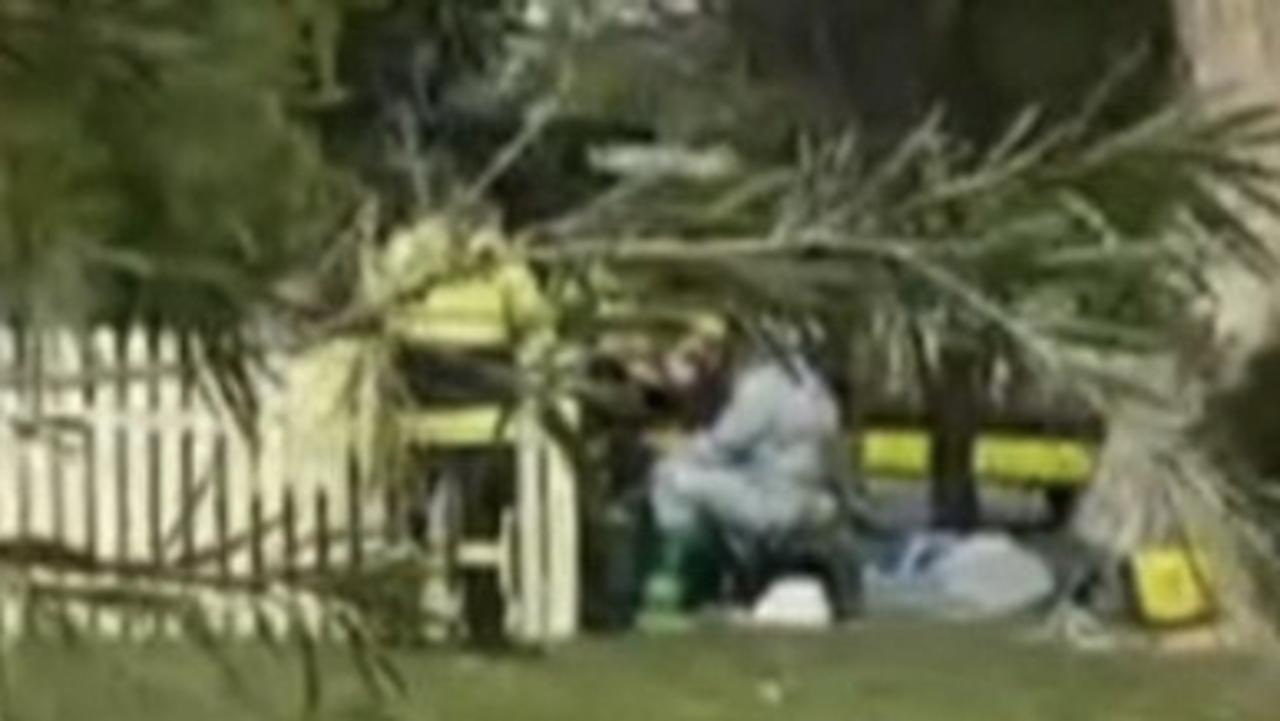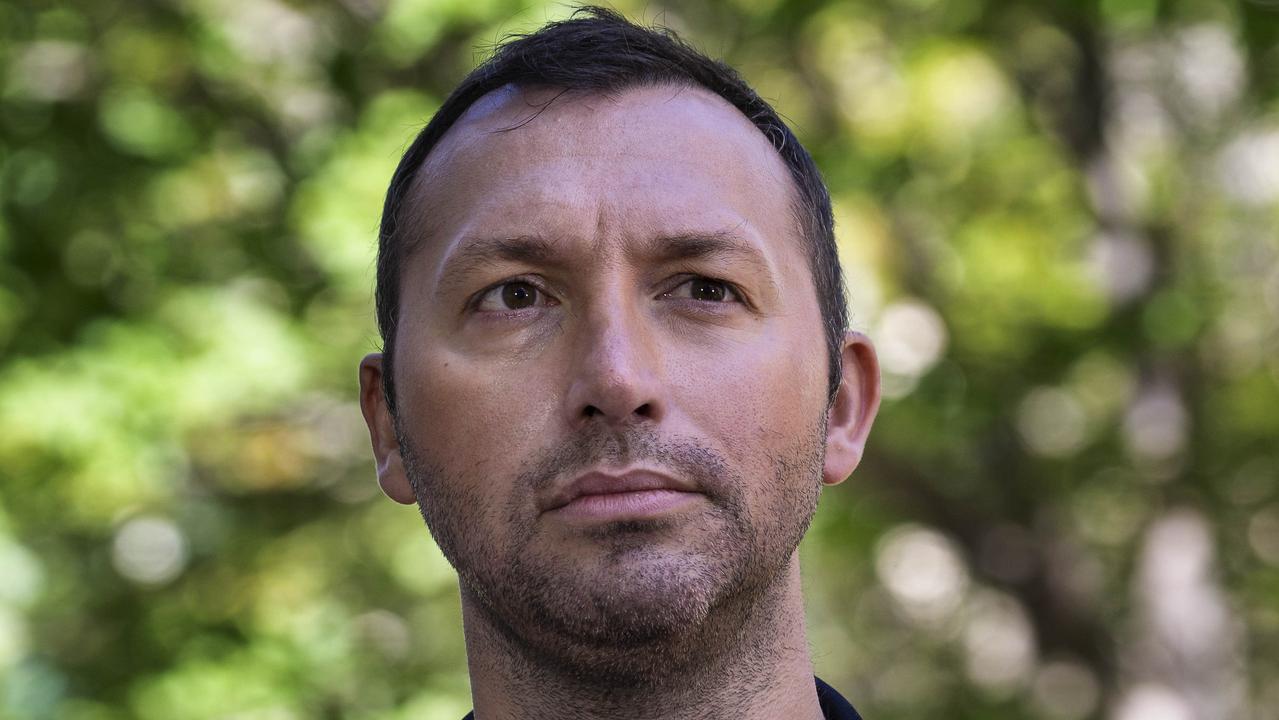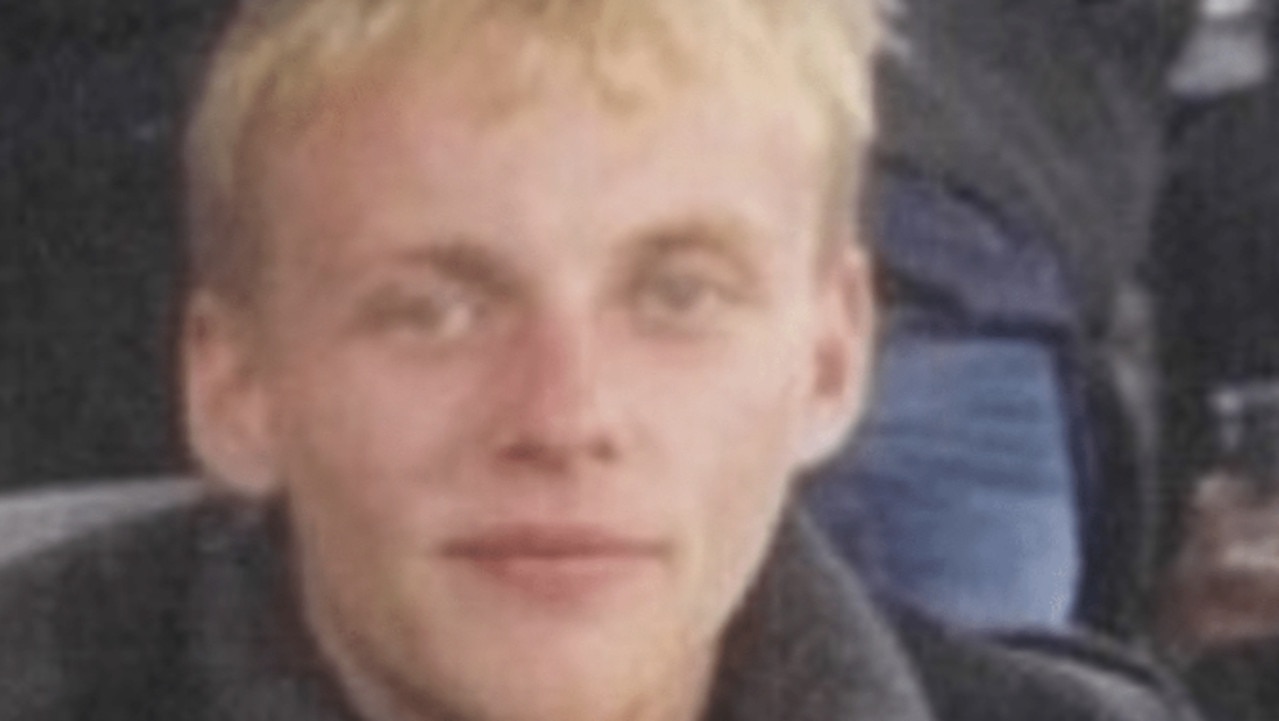Julia Gillard appears at Royal Commission into Trade Union Governance and Corruption
JULIA Gillard has told a royal commission that she can’t remember who paid the deposit for a house allegedly bought using union re-election funds.
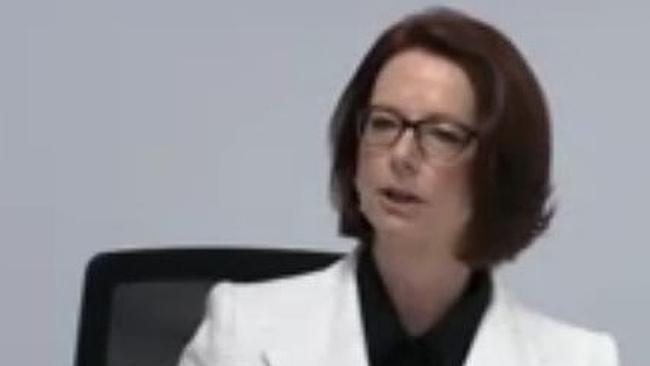
FORMER Prime Minister Julia Gillard says she doesn’t recall who paid the deposit for a property allegedly bought using money from a union re-election fund.
Ms Gillard is giving evidence at the Royal Commission into Trade Union Governance and Corruption today and is being questioned about a slush fund linked to her former boyfriend, Australian Workers’ Union (AWU) official Bruce Wilson.
She has repeated her assertion in evidence that her former boyfriend did not pay for renovations to her home. She has also defended her decision to do free legal work for him.
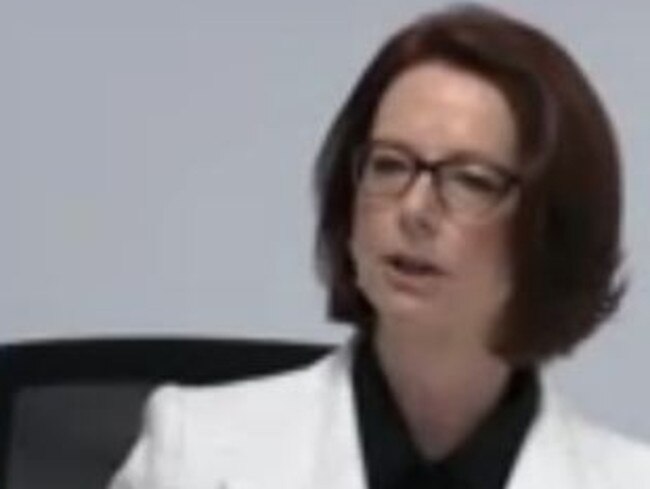
Just before lunch, Ms Gillard was asked about the purchase of a property in Fitzroy, Melbourne for which she prepared the power of attorney, and was allegedly bought using money from the slush fund.
Ms Gillard attended the auction in 1993 with Mr Wilson but she said she did not remember how the deposit was paid.
“I don’t have any recollection from the time about how the deposit was paid,” she said.
Mr Wilson allegedly bought the property using money from the slush fund.
The commission was due to resume at 2pm.
NO SIGNFICANCE
Ms Gillard said her legal work to create an incorporated association for her boyfriend in 1992 had no particular significance to her at the time.
The association was later turned into a $400,000-plus slush fund run by Mr Wilson.
Ms Gillard said that while her legal advice on the setting up of an incorporated association for Mr Wilson, “has come to assume a great deal of significance in the years since, at the time of these events and my provision of advice, it had no particular significance.
“This did not stand out among the number of legal matters I advised on, as it has come to now,” Ms Gillard said.
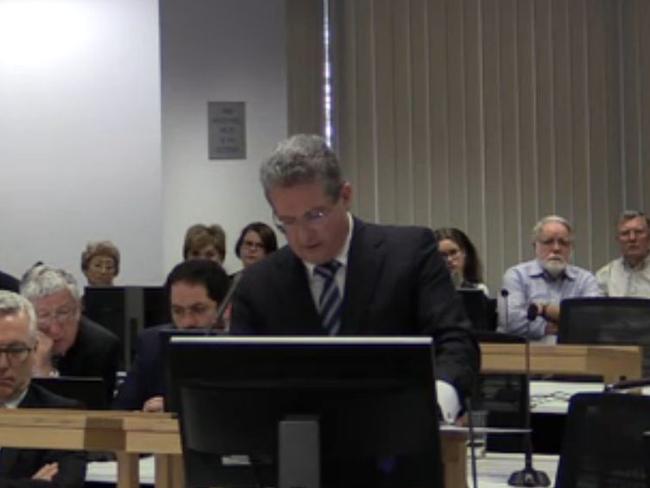
When asked whether she ever discussed the association with Mr Wilson, Ms Gillard said: “As couples do in relationships from time to time, we’d discuss matters at work - if you had a particularly good day or a particularly bad day, but no we did not discuss the association”.
TIME MACHINE
Ms Gillard said she had not checked with the union to confirm it had given approval for the use of its name as part of the name of the incorporated association, the Australian Workers’ Union Workplace Reform Association.
When asked about whether, on reflection, she should have contacted the AWU, she said: “None of us get to go in a time machine and go backwards. Obviously given the opportunity I would do things differently”.

MISLEADING?
Counsel assisting the royal commission Jeremy Stoljar SC asked Ms Gillard whether she thought that the association’s name was “misleading”.
“There was nothing in any of this back at the time which caused me to conclude in any way that the name of the association or anything else about the association would be used to mislead people,” Ms Gillard said.
She said that while she didn’t recall where the name came from, after the best part of 20 years, she believed it would have come from instructions to her from Mr Wilson or former AWU official Ralph Blewitt. It was noted that Mr Wilson has claimed to have come up with the name.
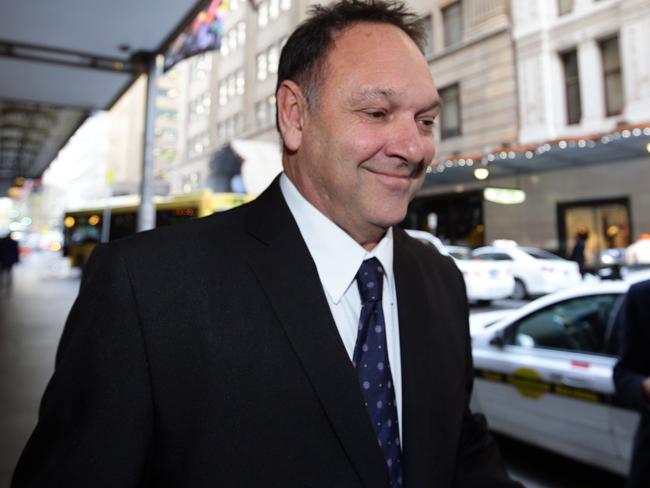
NOT PART OF UNION
Despite the name, Ms Gillard said it was not proper for the association to be part of the union.
“It is not proper for union moneys to be used to fund union elections,” Ms Gillard said.
“If it had been part of the union, clearly it couldn’t play a role in union elections.”
FREE ADVICE COMMON
Ms Gillard said in the early 1990s Slater and Gordon was a smaller firm that was heavily reliant on plaintiff personal injury matters.
She said it was common do work for the unions for free in the hopes of receiving referrals for personal injury matters.
A file was not always opened for matters that the firm would not be charging for.
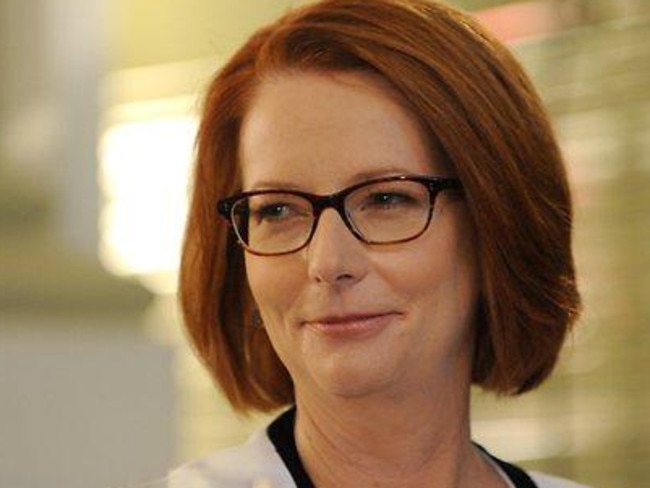
“It was always a judgment call on whether to open a file for work for which you would not charge a fee,” Ms Gillard said.
In hindsight, she said it would have been better for Slater and Gordon if she had opened a file for the work she did to set up the AWU Workplace Reform Association.
But when quizzed about whether it was a “substantial job” that she completed for free, she said: “I did more substantial jobs than this for free for trade unions at Slater and Gordon”.
She said it was a job that would have taken “three, four, five hours work at most”.
Ms Gillard said it was her understanding that Slater and Gordon had set up incorporated associations for other unions but that she did not recall doing so for any other unions.
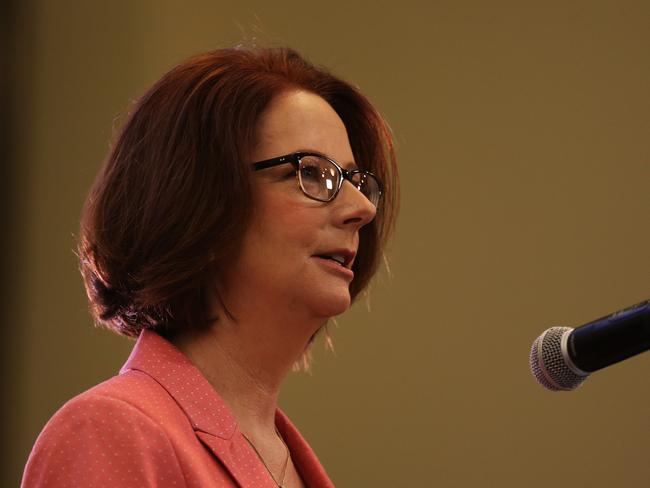
When asked about whether she was “predominantly communicating” with her then boyfriend about the work, she said that she was “more regularly in contact” with Mr Wilson, but also dealt with Mr Blewitt.
NO KNOWLEDGE OF BANK ACCOUNT
Ms Gillard said that while she knew there was an intention to set up a bank account for the Workplace Reform Association, “I had no knowledge at that time or knowledge at any time about the banking arrangements”.
Mr Wilson raised with her that he wanted to set up a fund that would support him and his team in their re-election efforts in Western Australia, but she said she had no knowledge that a fund had been set up until media interest in the fund had emerged in recent years.
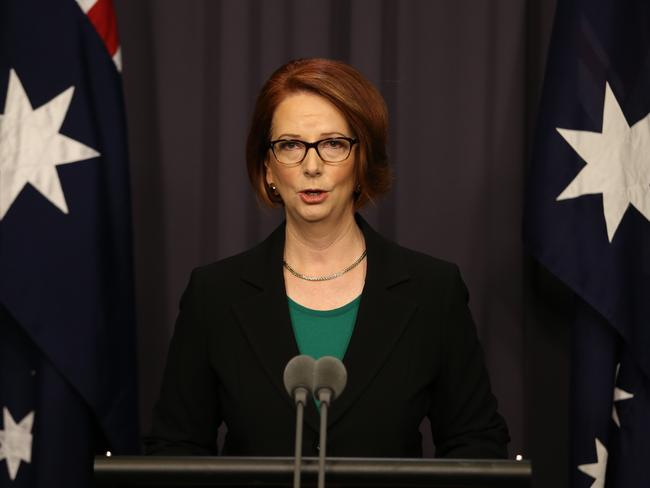
THE HISTORY
The former prime minister confirmed that she met Mr Wilson in 1991 and they started dating late that year.
She also confirmed she received a $40,000 advance from Slater and Gordon, when she was made a salaried partner in lieu of a pay rise. She used the money to buy a property in Abbotsford.
Ms Gillard has always denied allegations that money from the slush fund was used to pay for renovations to her home.
Or that she knew that money from the fund was used to buy a house in Mr Blewitt’s name.
Federal Court judge Bernard Murphy, who was Ms Gillard’s boss at the firm, told the commission on Tuesday he became aware of rumours around Slater and Gordon’s offices in late 1995 that renovations to Ms Gillard’s Melbourne home had been paid for by funds from the AWU.
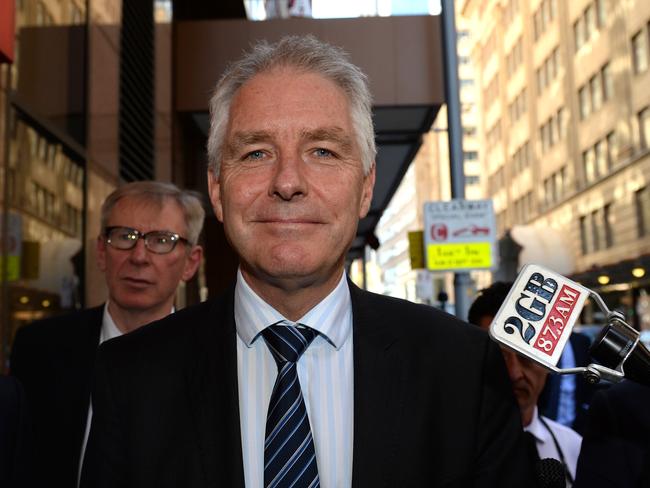
In her supplementary statements, Ms Gillard rejected previous evidence to the commission by a builder, Athol James, who said she had told him Mr Wilson was providing cash to pay for renovations to her home in Abbotsford, Victoria, in 1994.
“I never said to Athol that Bruce Wilson was paying for his work and I did not obtain cash from Bruce Wilson for the work Athol James undertook,” Ms Gillard said.
Ms Gillard also rejected claims by a former union employee, Wayne Hem, that he deposited $5000 into Ms Gillard’s bank account on Mr Wilson’s orders.
Ms Gillard said she had no recollection of ever receiving money in her account from Mr Wilson.
“All payments made for renovations on my property were from my own money,” she said.
Ms Gillard arrived almost two hours early for her appointment with the royal commission, getting there about 7.45am. She managed to avoid the media and was driven into an underground car park.
The hearing was not scheduled to start until 9.30am.
The Hon. John Dyson Heydon AC QC has been appointed to lead the royal commission.
The Commissioner has been asked to provide a report of his findings and recommendations on or before 31 December 2014.
The hearing in Sydney continues.

